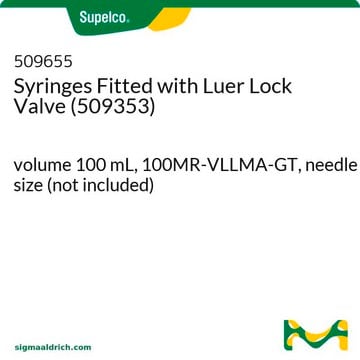01-3540
6-Aminocaproic acid
SAJ special grade, ≥99.0%
Synonym(s):
ε-Aminocaproic acid, 6-Aminohexanoic acid, EACA
About This Item
Recommended Products
grade
SAJ special grade
assay
≥99.0%
form
solid
availability
available only in Japan
mp
207 °C
207-209 °C (dec.) (lit.)
solubility
water: soluble
application(s)
peptide synthesis
SMILES string
NCCCCCC(O)=O
InChI
1S/C6H13NO2/c7-5-3-1-2-4-6(8)9/h1-5,7H2,(H,8,9)
InChI key
SLXKOJJOQWFEFD-UHFFFAOYSA-N
Gene Information
human ... PLAT(5327) , PLG(5340)
Looking for similar products? Visit Product Comparison Guide
Biochem/physiol Actions
Storage Class
11 - Combustible Solids
wgk_germany
WGK 2
flash_point_f
Not applicable
flash_point_c
Not applicable
ppe
dust mask type N95 (US), Eyeshields, Gloves
Certificates of Analysis (COA)
Search for Certificates of Analysis (COA) by entering the products Lot/Batch Number. Lot and Batch Numbers can be found on a product’s label following the words ‘Lot’ or ‘Batch’.
Already Own This Product?
Find documentation for the products that you have recently purchased in the Document Library.
Our team of scientists has experience in all areas of research including Life Science, Material Science, Chemical Synthesis, Chromatography, Analytical and many others.
Contact Technical Service







